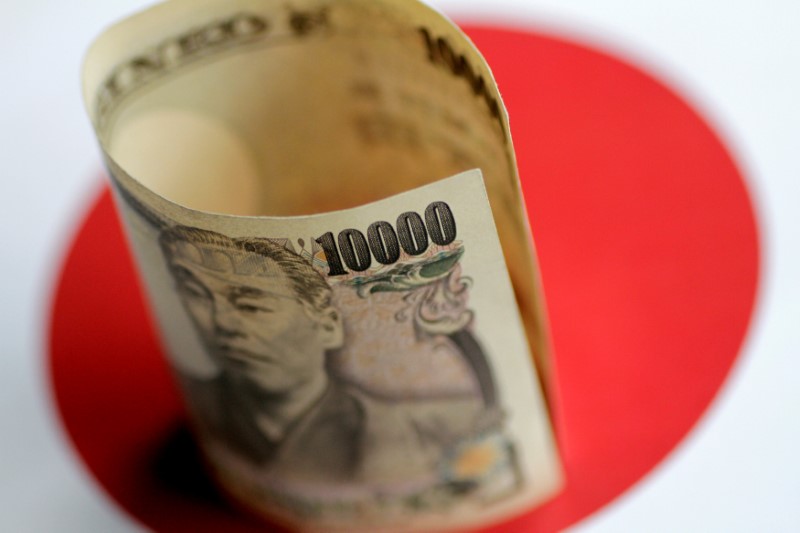By Saikat Chatterjee
LONDON (Reuters) - The Japanese yen jumped half a percent against the dollar and is set to score significant gains against the euro on Friday as prospects of a trade war gripped markets after U.S. President Donald Trump announced hefty new tariffs on steel and aluminum imports.
With Bank of Japan governor Haruhiko Kuroda catching currency markets by surprise by saying the central bank will consider an exit from its ultra-easy monetary policy if its inflation target is achieved in the year ending in March 2020, the yen was holding near its strongest levels this year.
"The underlying tone is one of caution in global markets, especially as a Bank of Japan policy meeting next week assumes significance after Kuroda's latest comments," said Manuel Oliveri, London-based FX strategist at Credit Agricole (PA:CAGR).
Short yen positions, at $12.62 billion, are near record levels hit in early 2014 as investors have bet that monetary policy divergence between the U.S. central bank and the Bank of Japan will increase over time.
The greenback was nearly 0.5 percent lower at 105.75 yen
Speculation about when the BOJ, which has significantly lagged its peers in moving toward policy normalization, would explore an exit from easy policy has been one of the key themes impacting the yen.
DOLLAR WEAKENS
The dollar was on the back foot even before Kuroda spoke, having pulled sharply back from six-week highs after U.S. Trump's decision to impose tariffs on steel and aluminum took the wind out of the greenback's week-long recovery.
The dollar index against a basket of six major currencies (DXY) fell 0.1 percent to 90.194.
Trump announced on Thursday that he would impose large tariffs on imported steel and aluminum to protect U.S. producers, risking retaliation from major trade partners such as China, Europe and Canada.
But investors were wary of kicking the dollar much lower, particularly against the euro and sterling, due to looming political developments.
The focus for the euro was on Sunday's Italian parliamentary election and the level of support for populist agendas that could have a wider impact on the European Union.
Also on Sunday, Germany's Social Democrats announce the result of a binding members' vote on a coalition deal that would secure Angela Merkel a fourth term as chancellor.
The single currency (EUR=EBS) was flat around $1.2271.

British Prime Minister Theresa May will lay out her views on how to keep trade open between all of the United Kingdom and the European Union in a key speech at around 1330 GMT on Friday.